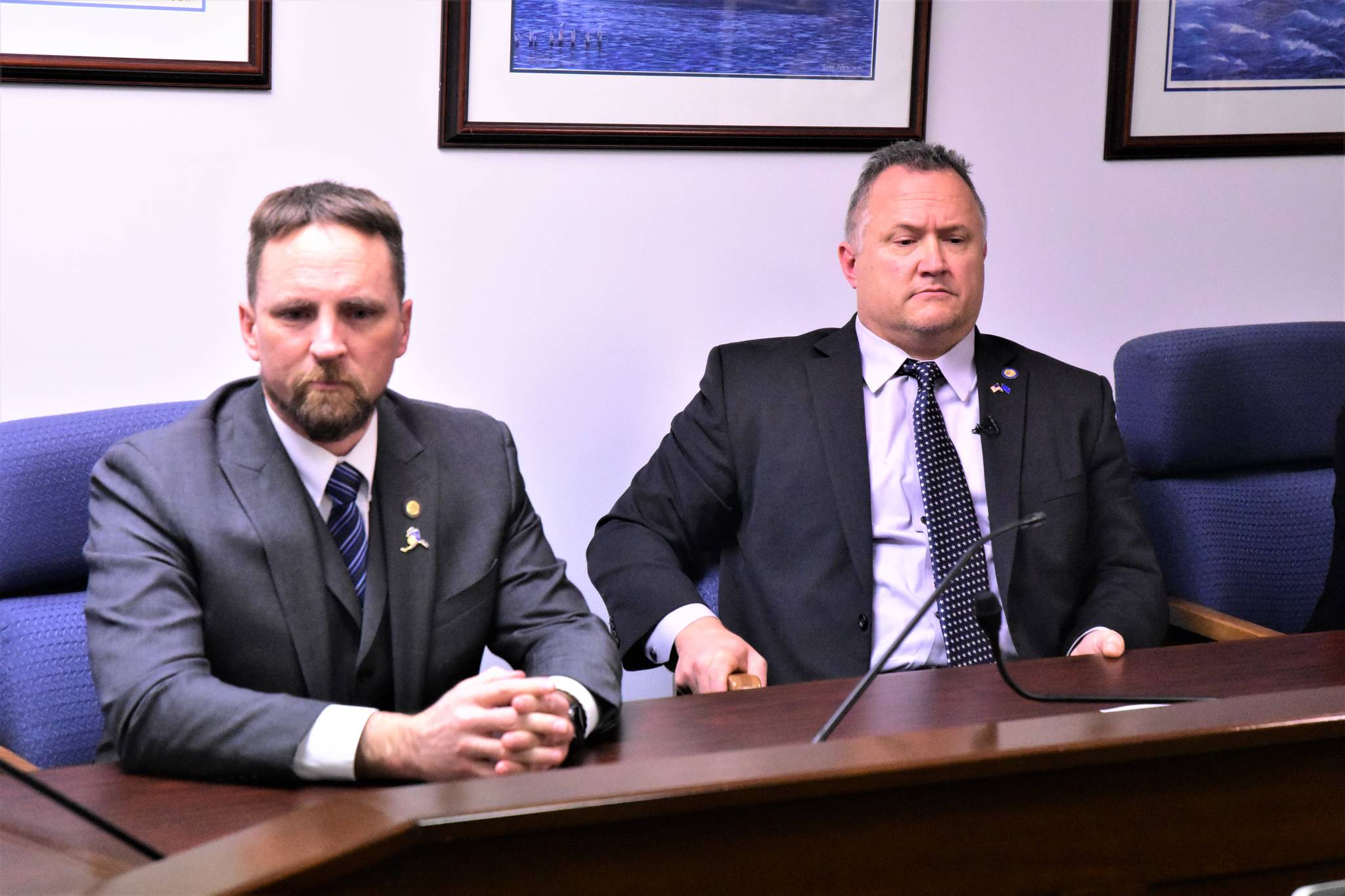Sen. Mike Shower, R-Wasilla, announced the introduction of a bill that would prohibit binding caucuses in the Alaska Legislature.
Shower, was joined by fellow Republican lawmakers Sen. Shelley Hughes, Palmer; Reps. Ben Carpenter, Nikiski; Sharon Jackson, Eagle River; Colleen Sullivan-Leonard, Wasilla; and Sarah Vance, Homer; in a meeting late Wednesday afternoon.
Shower and his colleagues said the binding caucus rule undermines the voice of minority members and effectively silences their ability to vote as their constituents elected them to do.
“The process was meant to be slow,” Shower said at a press conference. He said the argument that a binding caucus speeds up the political process and allows for laws to actually pass through the Legislature undermines the political process.
“To say that we have to just do something and hand power to a few people, that doesn’t make sense to me,” Shower said.
Shower, Hughes and Sens. Lora Reinbold, R-Eagle River, were stripped of their committee assignments because of their vote against the final budget bill at the end of the last legislative session.
In a meeting with Senate leadership immediately following Shower’s press conference, Sen. Gary Stevens, R-Kodiak, said without a binding caucus, the Legislature would never get any work done.
“If we did not have this agreement we would be a year-round Legislature,” Stevens said.
Following the meeting with Shower and his colleagues, reporters met with Senate President Cathy Giessel, Anchorage; Bert Stedman, Sitka; Natasha Von Imhof, Anchorage; John Coghill, North Pole; and Stevens, all Republicans, in Giessel’s office at the capitol.
“If you’re part of (an) organization you have to work with people,” Coghill said. “There’s a difference between working with people and demanding something.”
But that’s also the argument opponents of the binding caucus rule made against the leadership.
“We can still have effective caucus without being one that says if you do not follow the majority then we are going to punish you,” Vance said.
Both Shower and Hughes said they are still members of the binding caucus, which they joined because being part of a caucus gives access to committee chairmanships and other policy-making advantages.
“The binding rule is fundamentally un-American, our constituents send us here based on our beliefs,” Hughes said. “I’m being forced to vote opposite of what I believe.”
Shower admitted the would be difficult to pass, but said that it was necessary to at least raise the issue within the Legislature.
• Contact reporter Peter Segall at 523-2228 or psegall@juneauempire.com.

